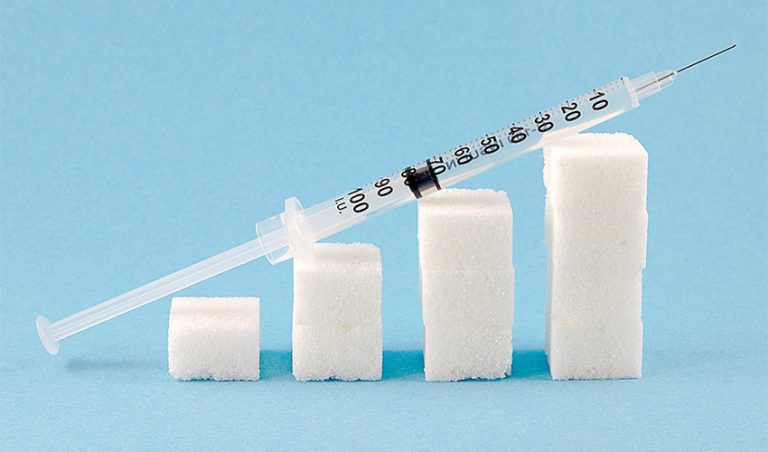
Do you know that around 9.3% of the global population suffers from Diabetes Mellitus (1)? Diabetes is a lifestyle disease that impacts how your body utilises blood sugar, which is why supplements for diabetics are so popular today.
Insulin is a hormone that transports sugar to your cells from your blood. If you are a diabetic, your body either does not make enough insulin or cannot properly utilise the insulin that it does produce. Both scenarios mean that your cells aren’t getting enough fuel, and there is an increase in your blood sugar levels.
A chronic condition like diabetes can affect your overall health and cause noticeable symptoms. Some common signs of sugar (diabetes) include the following:
Diabetes can eventually damage blood arteries in the kidneys, heart, eyes and nerves. Diabetics are also more likely to suffer from strokes, heart issues, and renal failure. Many diabetics experience foot problems due to nerve damage and insufficient blood flow. This may lead to foot sores and ultimately to amputation.
Prediabetes is a condition related to diabetes in which blood sugar levels are higher than normal, but not high enough to be diagnosed as diabetes. If you are able to get diagnosed in the prediabetes stage, you may be able to prevent the onset of diabetes with the help of lifestyle changes under your doctor’s guidance. However, there are no apparent symptoms of prediabetes, making it difficult to diagnose; regular blood sugar checks are usually responsible for the timely diagnosis of prediabetes.
Consuming a suitable protein powder for diabetics can reduce blood sugar and keep these symptoms in check. Additionally, knowing the causes behind diabetes can make it a lot easier for you to manage the condition.
Diabetes is a broad term that covers the three types of diabetes – Type-I, Type -II and gestational.
Under certain circumstances, your immune system starts to attack and destroy the cells in the pancreas that produce insulin, leading to Type-I diabetes. While it’s hard to narrow down a specific cause, the following are some common triggers for Type-I diabetes:
The symptoms for Type-I diabetes set in within a matter of weeks. While diet and exercise can help you regulate your blood sugar levels, you may need to include food supplements for diabetics in your diet. Consult your doctor or physician before modifying your diet plan.
In contrast to Type-I, the symptoms of Type-II diabetes develop slowly over time. This type of diabetes is usually a result of genetics and lifestyle factors.
Being overweight can put you at a higher risk of developing Type-II diabetes. Obesity combined with a lack of daily physical activity can cause Type-II diabetes.
Certain genes can increase your chances of being diabetic, and some ethnicities are also at greater risk of developing Type-II diabetes. If you have a family history of this condition, it’s a good idea to get tested once every six months.
Sometimes, your liver, fat cells and muscles do not utilise the available insulin efficiently. Your pancreas responds by producing more insulin. The additional strain slowly causes your pancreas to reduce insulin production. Apart from these, certain medications, hormonal conditions, or genetic mutations can also cause diabetes.
Your body undergoes several hormonal changes when you are pregnant. These, combined with the weight gain during pregnancy, can trigger insulin resistance and cause gestational diabetes.
Diabetes is a systemic disease that affects various parts of the body, and it can cause sudden and severe (acute) or long-term complications. Some acute complications of diabetes, which can be life-threatening and require urgent medical care, include the following:
High blood sugar levels for too long have a detrimental effect on your body’s organs and tissues, leading to the causes of diabetes’ long-term complications, including the following:
Doctors may recommend a combination of the following tests to measure your blood glucose levels and check whether you have diabetes or not if you present with sugar (diabetes) symptoms:
If your doctor suspects that you have diabetes type 1, they may test your urine for the ketone’s presence. Ketones are a byproduct that occurs when fat and muscle are used for energy. Your doctor will also most likely perform a test to determine whether you have autoantibodies, which are damaging cells of the immune system linked to diabetes type 1.
Diabetes is a metabolic disease that can significantly impact your lifestyle. It cannot be cured, overnight; you need to make healthier choices to manage the condition.
Living with diabetes is possible with Prohance-D. Prohance-D is the best protein powder formulated for diabetics’ individuals that provides well-rounded nutrition. The easy-to-make formula reduces the spike in blood glucose levels and keeps you feeling full for longer. Make the switch to a healthier lifestyle with Prohance-D.
Disclaimer: This blog is meant for awareness/educational purposes and does not constitute or imply an endorsement, sponsorship, or recommendation of any Products. Please consult your doctor/healthcare practitioner before starting any diet, medication, or exercise.
